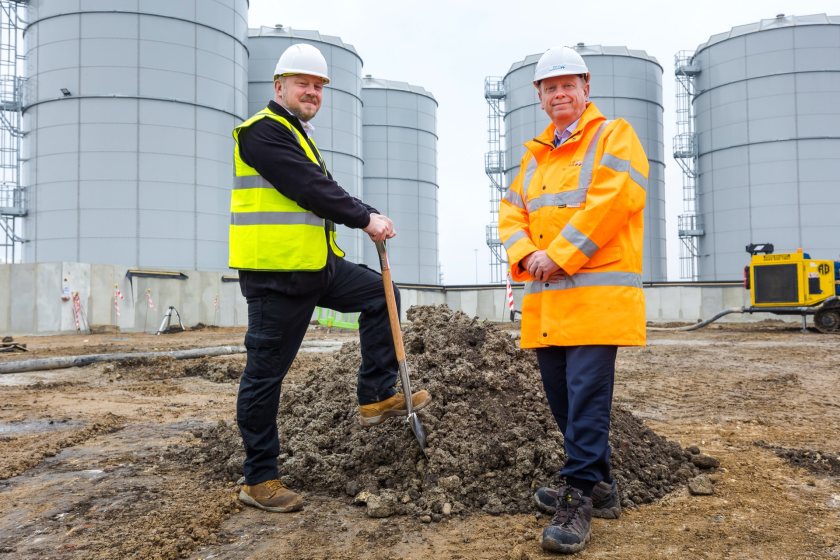
Sunderland will soon be the site of one of Europe’s largest dedicated liquid fertiliser terminals, providing a major boost to British farmers amid surging prices.
Construction has started to significantly expand a fertiliser import terminal at Port of Sunderland, with fertiliser giant Brineflow saying it will be 'critical' to the UK’s food and drink supply chain.
Liquid fertilisers are the fastest growing area of the fertiliser industry, as farmers recognise the economic and environmental benefits over solid products, including reductions in emissions.
With fertiliser prices having shot up by 350% in 12 months, farmers are being incentivised to be more accurate about the placement of fertilisers and the use of liquid fertilisers helps with that.
Farmers could soon find some solace in Brineflow’s announcement, as work starts on Phase Two construction of one of Europe’s largest liquid fertiliser import terminals at Port of Sunderland.
The investment comes just months after the opening of the company’s first purpose-built terminal at the port, which will see it increase its handling and storage capacity by almost a third.
John Fuller OBE, chairman of Brineflow, said: “Fertilisers form the foundations of a global food chain. For the last 30 years, Britain has become increasingly reliant on Russian gas to produce its fertilisers as factories in western Europe have ceased production.
“The dramatic expansion of our new terminal will not only make it one of Europe’s largest liquid fertiliser terminals, it will open us up to the largest ship tankers from global markets instead of smaller vessels that are restricted to European ports.
“Our investment will make a substantial contribution to the food security of our nation and will place Sunderland at the crossroads of international supply lines that keep our country fed.”
Recent fertiliser supply issues have exposed a key fragility in the UK agricultural sector and this development will likely play a role in alleviating the pressures on farmers and growers.
Mr Fuller said producers from the Humber to the Scottish Borders had already gained new sources of supply.
“It’s all given us the confidence to build one of Europe’s largest dedicated liquid fertiliser import terminals right here in Sunderland," he said.
"It will set new standards for environmental efficiency and emission control whilst allowing the largest ships to bring this crucial national ingredient to our shores reducing Britain’s reliance on Russian gas.”
